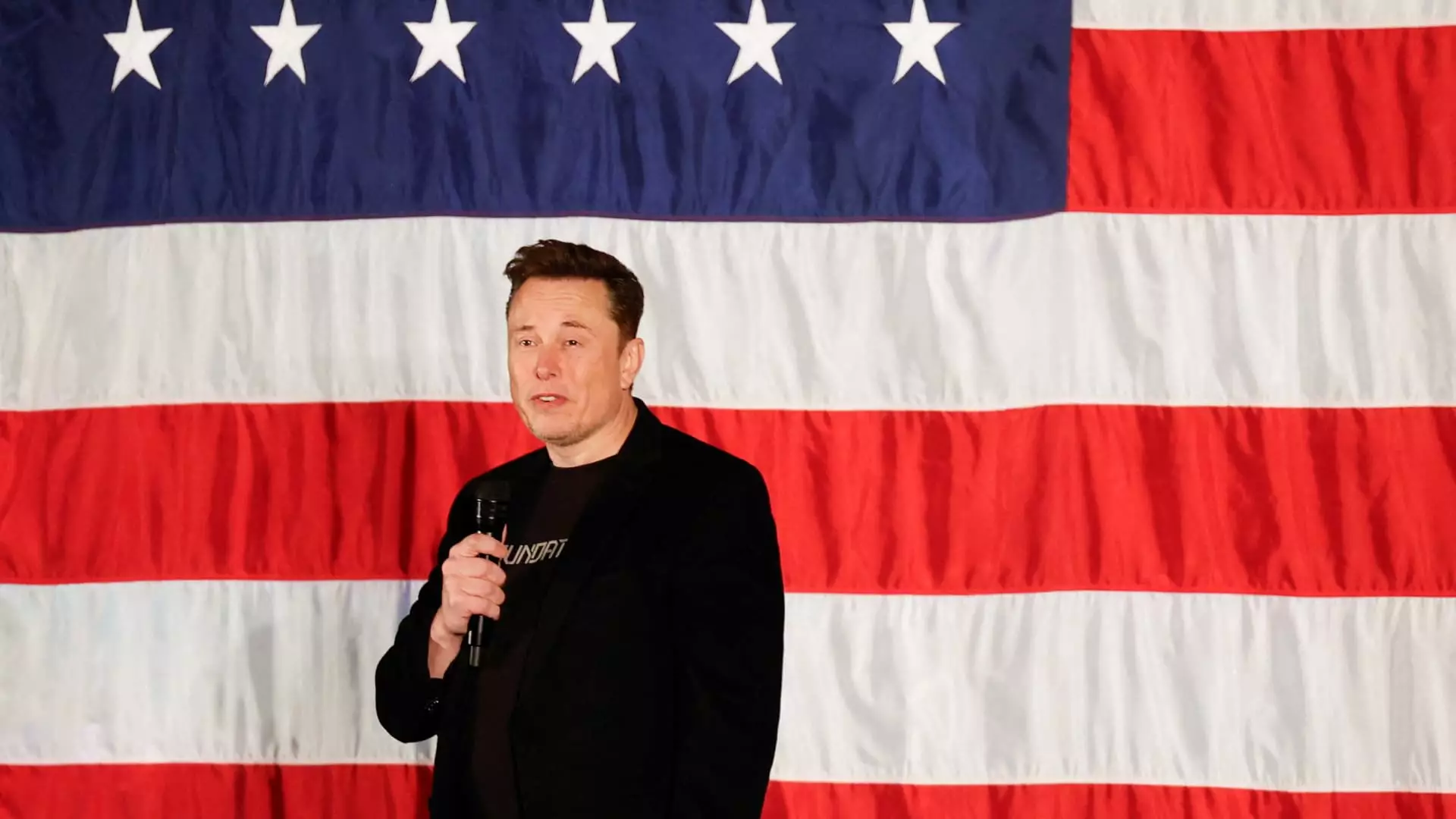On Friday, a Pennsylvania federal judge transferred a high-profile legal case involving billionaire entrepreneur Elon Musk back to state court. The lawsuit, filed by Philadelphia District Attorney Larry Krasner, challenges Musk and his political action committee’s $1 million daily lottery, aimed at incentivizing registered voters in key states. This ruling not only hints at the complexities of election law but also raises questions regarding ethical campaigning practices as the presidential race heats up.
The Nature of the Allegations
At the heart of Krasner’s lawsuit are serious accusations alleging that Musk’s America PAC is engaging in illegal lottery operations and attempting to sway voter opinions in the forthcoming presidential election, particularly pitting Donald Trump against Kamala Harris. Krasner’s claims extend beyond election law violations, suggesting a breach of Pennsylvania’s consumer protection laws. Such allegations could undermine the credibility of Musk’s initiative and spotlight broader concerns regarding the intersection of wealth and political influence in democratic processes.
The challenge here lies not only in whether the lottery can be considered illegal but also in the ethical implications of a billionaire using significant financial resources to engage voters. Critics of the lottery initiative argue that attempting to spur voter participation through monetary incentives raises eyebrows and blurs the line between engaging citizens and manipulating electoral outcomes.
After being moved to federal court just days prior, U.S. District Judge Gerald Pappert swiftly ruled to return the case, a decision stemming from the lack of substantive federal questions associated with the lawsuit. In a pointed declaration, Pappert emphasized that the origin of the legal claims was firmly rooted in state law rather than any federal issues. He dismissed arguments from Musk’s legal team which suggested that the case should be heard at the federal level due to its connection to the upcoming election.
This ruling is indicative of the challenges faced by those attempting to navigate the legal labyrinth of election law and the jurisdictions that govern such disputes. Krasner’s office expressed satisfaction with the ruling, viewing it as a validation of their arguments against the maneuvering of Musk’s legal team to remove the case from state court.
Moving forward, Krasner’s team is expected to quickly pursue an emergency request in the Court of Common Pleas aimed at halting the lottery program. The urgency of this action is underscored by the fact that the initial awards have already been distributed, with three winners hailing from Pennsylvania alone. The landscape ahead for Musk is fraught with potential legal pitfalls, especially as his actions are currently under scrutiny from state lawmakers and legal bodies alike.
The response from Musk and his PAC remains unaddressed, with CNBC seeking commentary from the legal representatives involved. The absence of a public defense at this stage could further complicate Musk’s position, especially if the courts view the lottery as a form of voter manipulation rather than a genuine effort to increase civic engagement.
As the political landscape evolves leading up to the election, Musk’s lottery project serves as an interesting case study in the ethics of campaign engagement. The debate surrounding financial incentives for voter participation not only questions the integrity of the voting process but also raises critical discussions about the influence of wealth in democracy.
What does it mean for democratic processes when financial incentives are introduced to sway public opinion? As the courts consider this case, the implications could reverberate through future political campaigns, especially in an era where social media, financial clout, and celebrity influence increasingly blend into the political arena.
While the federal ruling may have temporarily deflected legal complications for Musk’s America PAC, the larger questions about legality, ethics, and democratic integrity remain at the forefront. As both sides prepare for the next steps in this unfolding saga, it’s clear that this case is not merely about a lottery; it’s a significant moment in the ongoing dialogue about the role of money in politics and the integrity of electoral processes.



Leave a Reply